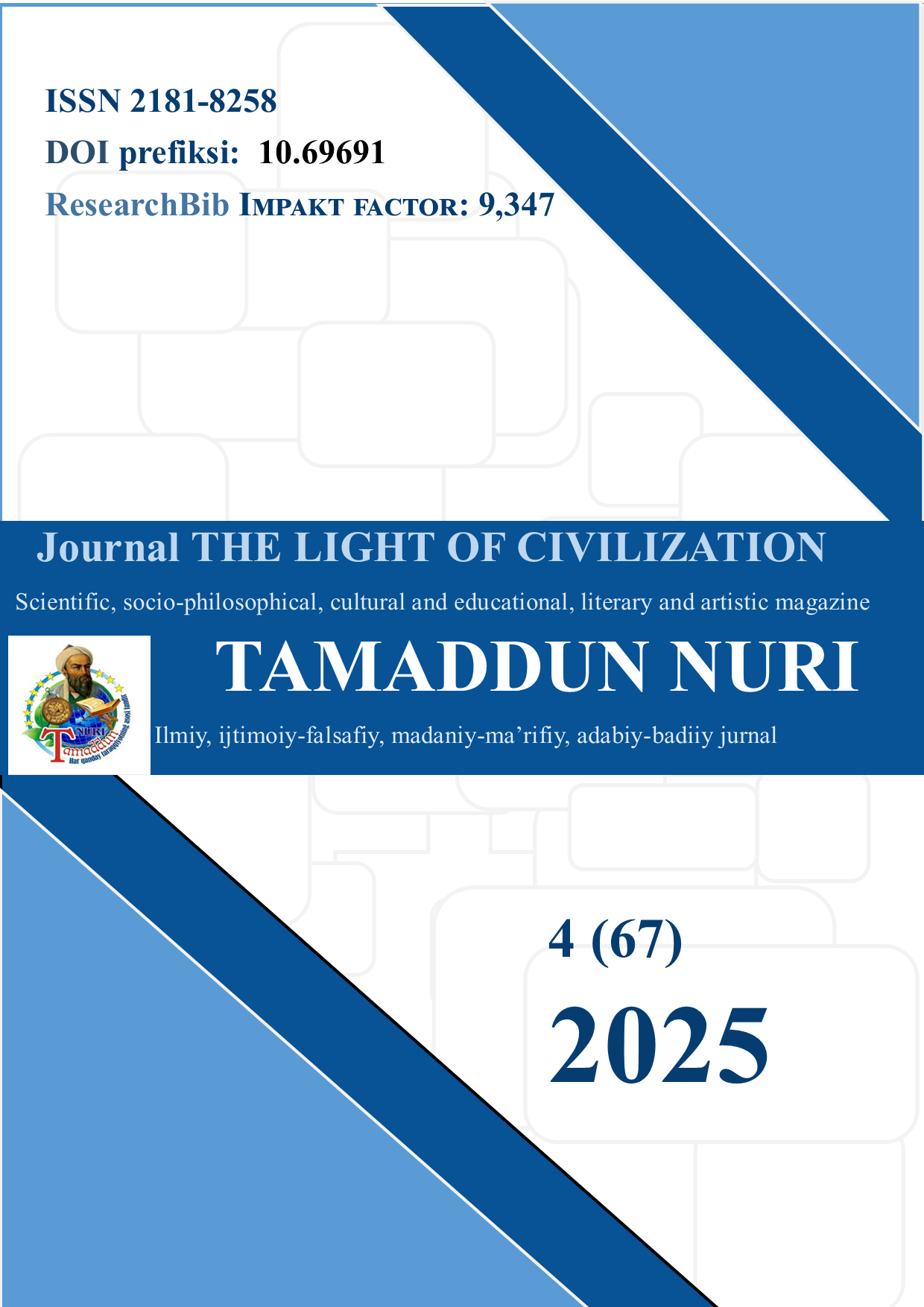USAGE OF PHRASEOLOGICAL UNITS WITH ONOMASTIC COMPONENTS IN ENGLISH AND RUSSIAN LITERATURE
DOI:
https://doi.org/10.69691/0e4xk136Keywords:
phraseological units, onomastic components, English literature, Russian literature, comparative analysis, cultural linguistics.Abstract
This article examines the use of phraseologisms with an onomastic component in English and Russian literature. It examines how nouns in the context of expressing the divine influence the meaningful and stylistic richness of an artistic text. The research focused on the cultural and linguistic aspects of these phraseologisms, on comparing their meanings, functions, and frequency in both languages.
References
Baker M. In Other Words: A Coursebook on Translation (3rd ed.). Routledge. 2018.
Bobrova L. A. Phraseological units with onomastic components in Russian and English: A comparative study. Philological Studies Journal, 15(3), 2017. – P. 45–59.
Cowie A. P. Phraseology: Theory, Analysis, and Applications. Oxford University Press. 2001.
Dobrovolskiy D., & Piirainen E. Figurative Language: Cross-Cultural and Cross-Linguistic Perspectives. Elsevier. 2005.
Kunin A. V. A Course in English Phraseology. Vysshaya Shkola. 1996.
Lakoff G., & Johnson M. Metaphors We Live By. University of Chicago Press. 2003.
Mieder W. Proverbs: A Handbook. Greenwood Publishing Group. 2004.
Downloads
Published
Issue
Section
License
Copyright (c) 2025 Journal of Tamaddun Nuri

This work is licensed under a Creative Commons Attribution-NoDerivatives 4.0 International License.



